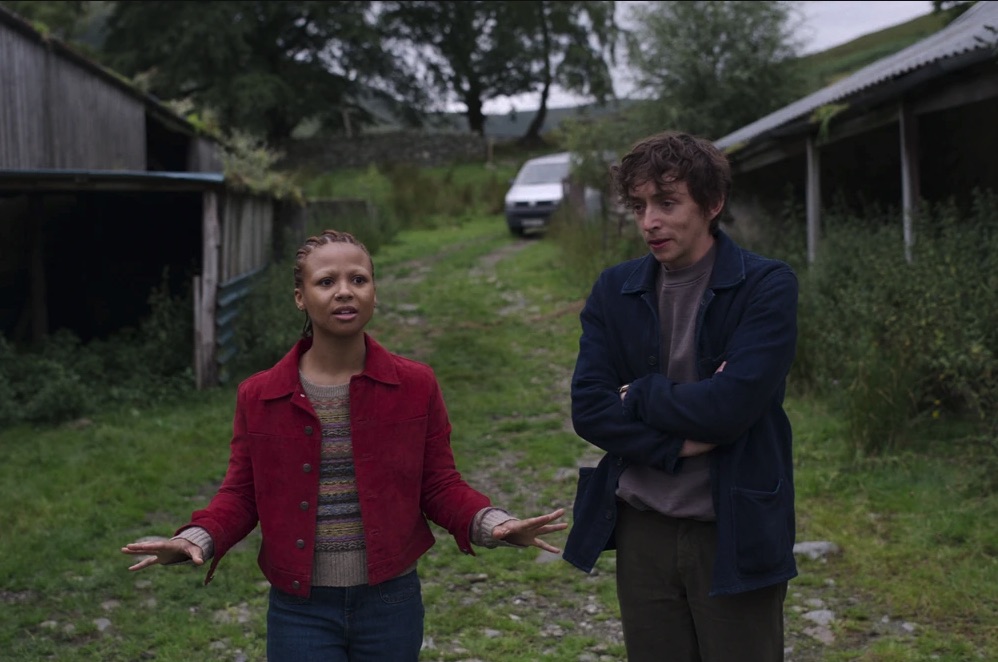John Gulliver: True blood lines
Do true crime podcasts really help anybody?
Monday, 10th July 2023 — By John Gulliver

Myha’la Herrold and Samuel Blenkin in Black Mirror [Netflix]
IT’S about time somebody stopped and thought about the ever-cheapening genre known as “true crime”.
Social media channels, podcasts and spooky television documentaries are, for some, a quick way to earn cash.
Their makers have identified that nothing draws in eyeballs and internet clicks more than sex, but if you don’t have sex – grisly crimes can be a speedy ratings success too, often for minimal effort in return.
If they can get sex and murder together, the view counts will spike upwards. But in the rush to retell a million horrific crimes – all with haunting sound effects – you can only imagine what surviving relatives are left to think as macabre details of a loved one’s death are recounted for entertainment.
In his latest Black Mirror series for Netflix, Charlie Brooker’s episode Loch Henry asks long-overdue questions along these lines, even if the storytelling in the piece is so blunt you can see the “twist” ending coming from the first five minutes.
He presents two young Bafta-dreaming filmmakers raking up the details of a forgotten serial killer’s crimes in a picturesque Scottish outpost full of seagulls and heavy-drinking, sweary stereotypes.
They revive the story with the obligatory archive news footage, shocked neighbour interviews and, as is law in every programme whatever the genre now, sweeping drone shots. As it happens, their editor who is meant to be a callous exec actually asks important questions about whether they are offering anything new to the story, and some of the message in the episode gets skewed because they do actually uncover some important loose ends.
In the vein of the excellent series The Jinx or the first series of Making A Murderer, the film they end up making changes the course of the case. But most cut-and-shut podcasts and 10pm true crime documentaries do nothing of the sort.
They parade ex-cops explaining what great detectives they were, criminologists disguising descriptions of mutilation as insight and a narration which lingers too long on the blood-letting and too little on how future killers could be stopped somewhere between birth and the moment they pick up a weapon.
Perhaps attitudes to how all of this is consumed changes when trauma happens to someone you know.
Speaking to relatives of those who have died in harrowing cases has certainly changed the tone and approach adopted by our paper to crime over the years.